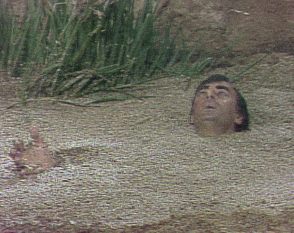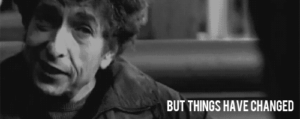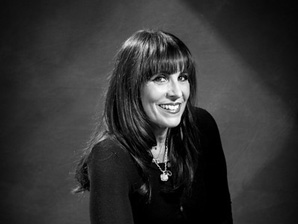The 100 Years Club Installment #85: Stuck
 Reading Time: 3 minutes
Reading Time: 3 minutesDo we really become more set in our ways as we age?
The research says otherwise. But first some background…
This week, I spoke to some friends who share my generation. And I also hung out with my grandkids (who are six decades apart from me).
We all seem to have a tendency — at any stage — to make sweeping statements about our preferences, our habits, and what we want to do in our daily lives or long-term.
“I don’t like lima beans.”
“Traveling is exhausting.”
“I only date men over six feet tall.”
“Pickleball is every Tuesday.”
“I’ll never do social media.”
“I always wash my dishes immediately after I eat.”
““I need to keep all this stuff in my house…it brings back memories.”
We sometimes protect ourselves by wrapping ourselves in the warm and cozy wrap of the familiar.
But here’s the answer to the question
According to one study:
“[As we get older], we develop into more altruistic and trusting individuals. Our willpower increases and we develop a better sense of humour. Finally, the elderly have more control over their emotions. It’s arguably a winning combination – and one which suggests that the stereotype of older people as grumpy and curmudgeonly needs some revision.”
But, as that article points out, people age and change at different rates and in different ways. As I often say on my podcast, someone can be a Geezer (stuck) or Beezer (open to new ideas, experiences, and data) at any age.
What makes change happen?
Sometimes, we have to do something terrifying or change a habit because of external forces (e.g., illness, financial circumstances, or the insistence of a loved one).
In other situations, we simply want to challenge ourselves or realize that something we’ve been doing for years no longer serves us well.
As I discussed with one friend, people will give us painful feedback, and we are forced to look at ourselves through their lens. Whether we change at that point depends on how much we want to be with that person and/or whether we believe that change will ultimately benefit us.
Obviously, someone suggesting that we try the cauliflower at dinner is radically different from being asked to zipline if you’re afraid of heights.

Stop, drop, and roll!
No, I’m not shouting “Fire!” here. But just as we are trained to react quickly and systematically to flames, we might want to follow an equivalent process when faced with a challenge to change.
Stop, think, and go with the flow (or not)!
As I’ve mentioned previously here, one of my summer mantras has been “Why the hell not?” When asked to do something outside my wheelhouse or comfort zone, I think about that.
(By the way, is a wheelhouse IN the comfort zone? The English language probably has 100s of terms for that “safe place.”But I digress. That’s probably one habit that’s not changing. :))
As we navigate all the stages of our lives, we can think about the things we do because they’ve always worked for us and what we might need to experiment with because perhaps it will make our lives even better or richer.
worked for us and what we might need to experiment with because perhaps it will make our lives even better or richer.
Researchers also believe that risk tolerance may have its roots in genetics and the human brain. And although eating vegetables may have a lower risk profile than soaring over trees, we may simply be born with wiring that makes us more or less open to doing new things.
So, in your day-to-day life and long-term planning, I heartily recommend that you serve as your own brain scientist and study your resistance to new experiences or simple changes.
Especially if you’re unhappy with some aspects of your current life, unsticking yourself can bring you a little closer to joy (or at least a great story to tell your friends afterward).


I think age and background has a lot to do with taking risks. Some of us, like me who lost my father early on, like to feel safe. I till do. Yes, I’ve had adventures, but I always check things
out before I leap!